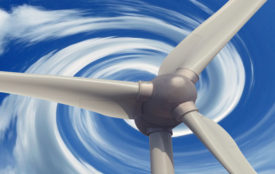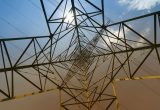Lloyd’s Register Technology Radar – Low Carbon
Low carbon technologies are now cost competitive with fossil fuels and innovation is gathering pace across the sector, finds a new report by Lloyd’s Register. But which technologies will have the most impact on the industry?
The drive towards sustainability has never been more urgent – and technology will continue to play a crucial role. The Lloyd’s Register Technology Radar – Low Carbon, published today, examines the outlook for renewables, nuclear, grid and infrastructure, and energy storage.
The research sought the insights and opinions of leaders across the sector, as well as the views of almost 600 professionals and experts around the world – from utilities and distributors through to operators and equipment manufacturers.
Respondents were asked to rate a number of technologies in terms of their potential impact, the amount of time it would take for these technologies to hit the market, and how likely they are to be adopted once they do. Respondents were also asked on reflect on the pace and success of innovation in their sector – and what they see as the major drivers and blockers.
Key findings include:
- Low carbon generation technologies are cost competitive. Nuclear is one of the cheapest options for power generation when lifecycle costs are taken into account. 70% of survey respondents say that renewables are now reaching cost parity with fossil fuels.
- Solar cell technology is likely to have a major impact, and soon. Renewables respondents are most optimistic about the potential of advances in solar cell technology – and the likelihood of adoption.
- The potential contribution of Small Modular Reactors (SMRs) is unclear at this stage, although its impact will most likely apply to smaller grids and isolated markets. However, the underlying modularisation technology is expected to have a major impact on the sector.
- Nuclear will continue be part of the solution to climate change long into the future. Although public acceptance is a major challenge in some countries, nuclear is likely to contribute to the energy mix for the foreseeable future.
- Software advances will be instrumental in transmission and distribution. They are seen by respondents as the innovation that will be the quickest to arrive and the most likely to be adopted. Blockchain could reshape the way we think about the transmission and distribution of power by enabling a new era of peer-to-peer low carbon generation.
- It is electrical technologies that will transform storage, rather than mechanical storage or chemical technology innovations. In particular, respondents expect supercapacitors, which will rapidly speed up charging times for large batteries, to have the greatest impact on storage.
“We are very encouraged by the findings, which highlight not only a growing optimism across the industry but a vigorous and intelligent debate about the pathways to decarbonisation,” says Alasdair Buchanan, Energy Director of Lloyd’s Register, a leading provider of integrity, compliance and specialist risk consulting services. “Clearly, there are many uncertainties about exactly how the industry will evolve, but what is inarguable is that the conversation is no longer about “should we?” but “how should we do it?””
This is the third year Lloyd’s Register has conducted its award-winning Technology Radar research. Whilst earlier editions have focused on the oil and gas sector, this time around, the research concentrates on the low carbon sector, with particular attention to nuclear and renewable energy, energy storage and infrastructure. The timing of this report will help to inform government debate and energy policy across the world.
The research is presented as a set of two reports: the Lloyd’s Register Technology Radar – Low Carbon, which provides a comprehensive review of the findings about renewables, nuclear, energy storage and infrastructure. Its sister report, the Lloyd’s Register Technology Radar – A Nuclear Perspective – offers a closer look at the findings as they relate specifically to nuclear power.
Go to Lloyd’s Register to download the Technology Radar – Low Carbon.







